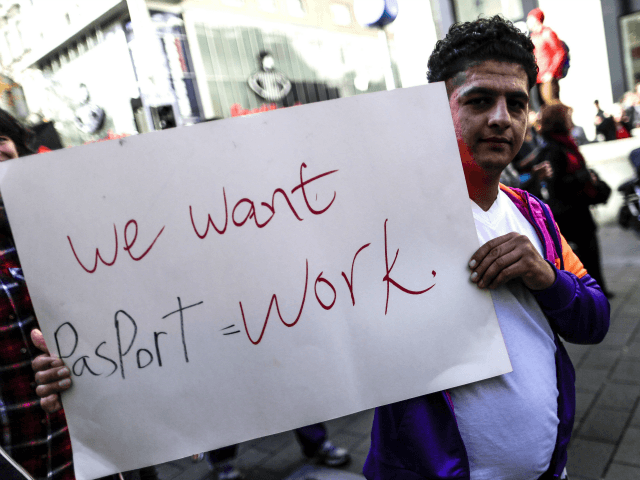The British government is pledging yet again to stop European Union migrants from claiming benefits after EU officials slapped down the plans last year.
Former Prime Minister David Cameron made the promise a key part of his demands while attempting to renegotiate the terms of Britain’s EU membership. However, other EU leaders would only agree to a temporary compromise, forcing Mr Cameron into an embarrassing climb down and helping fuel the Brexit vote.
Now his successor Theresa May is looking at resurrecting the policy and bringing EU migrants in line with migrants from elsewhere in the world.
The Times reports that the government is considering the move along with a series of other decisions over the future of Britain’s immigration system after Brexit.
In February last year, government data showed the UK has paid over £1 billion in welfare payments to unemployed EU migrants. Figures showed that in 2013/14 alone, British taxpayers paid £886million for unemployed EU migrants living in the UK, and a further £814 million for EU migrants in work.
Now the government is deciding whether to finally honour David Cameron’s pledge of ending these benefits, although they have so far refused to commit.
The report comes as the government continues to give mixed signals over its Brexit strategy. David Davis, the Brexit minister, has hinted he would not like to see business affected by curbs on low-skilled immigration, indicating at various times that Britain could stay in leave the Single Market.
Chancellor Philip Hammond has also called for a “business friendly” Brexit, although has declined to go into details.
However, Theresa May is determined to appear tough on immigration. In her speech to the Conservative Party conference in October, the Prime Minister said: “We are not leaving the European Union to give up control over immigration again.
“We are leaving to be a fully sovereign and independent country – and that deal is going to have to work for Britain.”

COMMENTS
Please let us know if you're having issues with commenting.